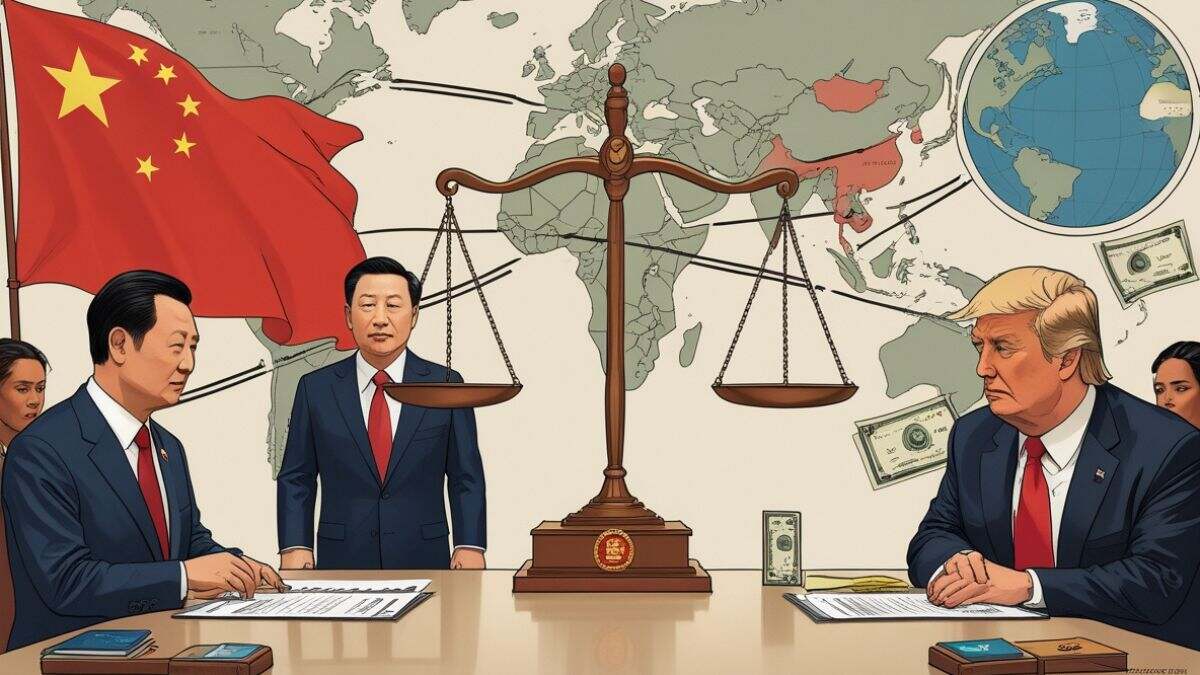At a time when China is being forced by increased US tariffs to shift an increasing amount of its exports to emerging economies from Latin America to Africa and Southeast Asia—a move that is beginning to encounter opposition globally—the gesture is noteworthy.
Removing a bone of dispute between the US and China that has impeded their agreement to restructure the global arbitrator of trade, China will no longer claim the advantages offered to developing countries at the World Trade Organization.
According to a statement from the WTO’s head on X and state-run Xinhua News Agency, Premier Li Qiang said Tuesday in additional York that the nation would no longer pursue additional “special and differentiated” rights in any present or future WTO discussions. Li is in the United States right now for the UN General Assembly.
WTO Director General Ngozi Okonjo-Iweala praised China’s leadership and hailed the X decision as “a culmination of many years of hard effort.”
The gesture is noteworthy at a time when US tariffs are pushing China to shift its exports to emerging economies from Latin America to Africa and Southeast Asia, a trend that is beginning to encounter opposition globally.
Additionally, it is probably an attempt to win over President Donald Trump, who has long objected to the designation’s unjust application to the second-biggest economy in the world, as Beijing seeks to negotiate a longer-term trade agreement with the US.
One of the problems impeding WTO reform talks has also been the issue of China’s standing.
Earlier this year, trade leaders from the US and China, as well as other countries in the Asia-Pacific area, called for “meaningful, essential, and complete reform to better all its activities” while recognizing the organization’s significance for advancing trade problems and the need of its regulations.
Self-declared developing country status offers WTO members a number of advantages, such as extended implementation periods for accords. China has long referred to itself as the biggest developing state in the world, using its status to assert a leadership role for other developing nations.
The UN continues to categorize China as a developing country even after it has transformed into the largest commercial and manufacturing economy in the world over the last four decades. According to the International Monetary Fund, its gross domestic output per capita is significantly outside the top 50 in the world, ranking slightly ahead of Montenegro and Turkmenistan and behind Serbia.
Demands that China proclaim itself a “developed” country in international affairs are an example of inequity, according to Foreign Minister Wang Yi in 2019. Additionally, he said earlier this year that his nation had a “shared historical history of opposing colonialism and hegemony and a common goal of growth and rejuvenation,” making it a “natural member” of the Global South.
Han Yong, a Ministry of Commerce official in charge of relations with the WTO, told reporters in Beijing on Wednesday that while China is no longer eligible for the preferential treatment, its position as a developing country would remain unchanged.
The announcement is “years too late,” according to Wendy Cutler, a seasoned US trade negotiator and senior vice president of the Asia Society Policy Institute.
“The declaration, although positive, will have little practical impact given the lack of a WTO negotiation agenda and the sluggish pace of its reform efforts,” Cutler added.
Beijing presented the decision as a continuation of its efforts to establish itself as a champion of developing countries. China has courted the Global South in an effort to challenge the US-led international system.
The Ministry of Commerce stated in a statement that China’s decision to forego the advantages “is an essential action to maintain and enhance the multilateral trade system” and would emphasize “China’s position as a big developing economy.”
It also referred to two recent Chinese policy ideas to alter international relations, calling it “an significant measure to execute the Global Development Initiative and the Global Governance Initiative.” According to Xinhua, Li made the revelation during a Global Development Initiative event.
China’s continued claims of developing status have drawn criticism from the US. “The United States has never acknowledged China’s claim to developing-country status, and almost every current economic indicator defies China’s claim,” Trump said in 2019, during his first term in office.
When asked for more details on the statement, the White House and the US Trade Representative did not immediately reply.
China’s standing is a major topic of contention in climate talks, therefore the issue goes beyond international commerce.
The goal is for developed nations to donate $100 billion annually to a fund that will assist developing countries in funding climate solutions. China is now the biggest emitter in the world, but because of its categorization, it does not contribute to the fund, a position that has drawn criticism from both the US and Europe.
China has announced a shift, but it is unlikely to ease the trade and other tensions between Beijing and Washington. Chinese exports continue to rise rapidly; in the first eight months of this year, they increased by about 6% to set a new record.
Hours after the WTO decision, China’s top trade representative Li Chenggang criticized US policies on Wednesday, saying that “hegemony, unilateralism, and protectionism are pervasive.”
Li, who is also the deputy minister of commerce, told reporters in Beijing that the rules-based international trade system is now facing significant obstacles. “One nation has started a trade war and then a tariff war, seriously harming the rightful interests of WTO members, seriously upsetting the international economic order, and creating uncertainty and volatility in the world economy.”

